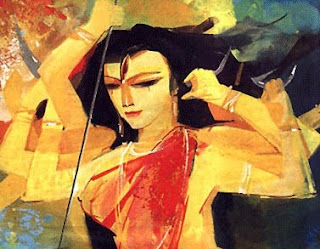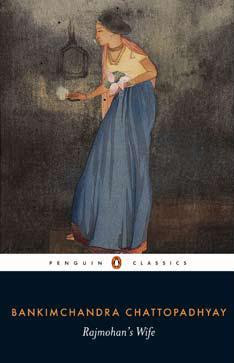Pujo maane
Pujo means shiuli phool, pujo means kash phool, pujo means ponds filled with padma phool and blue skies filled with white cotton-like clouds.
Although dressing well is the major part of pujo but it is much more than that. The fun involves many other things. Starting with Durga Pujo and ending with bhaidwitiya its all about things we do not do the whole year. Bathing early in the morning, getting dressed and off we go to explore the city. Food loving Bengali strike out the word 'dieting' from their dictionary when it comes to high calorie pujor khabaar.
And the crowded pandals does not seem to bother us at all, these seem so heavenly. Sitting in the pujo pandals the whole day does not boar us at the least. Everything seems good. Walking long distances with friends and family to catch the wonderful pandals results in aching legs but no one can stop us. New shoes bother us a lot with the boils but it is too small a factor to stop us during pujo.
Pujor prem is the most essential ingredient to spice up the pujo. Staring at each other, feeling shy, trying to talk but failing every time due to some reason or the other. But pujo prem normally gets over as soon as all the pomp and show of the pujo is over. And we need to wait for another year. Ashtami forms the most important day - fasting from the morning, get dressed in indian clothes, offering pujo, staring at boys/girls and eating bhog after the fast is over makes the day very very special.
Pujo means adda and we Bengalis are very good at that. Lots of gossiping and laughing out without maintaining any etiquette is a must and what can be better than fuchka to accompany the adda. Pujo also means late night programmes with lots of music and lots of lights and fireworks. New music albums and new pujabarshiki magazines are very essential. Fun knows no bounds. The sound of the dhak and the dhunuchi nanch are just irresistible!








a nice post...
ReplyDeleteonce again felt how special our durga pujo is....:)
Absolutely!
ReplyDeleteIts very very special
this is too nice......post
ReplyDeletethank you!
ReplyDelete